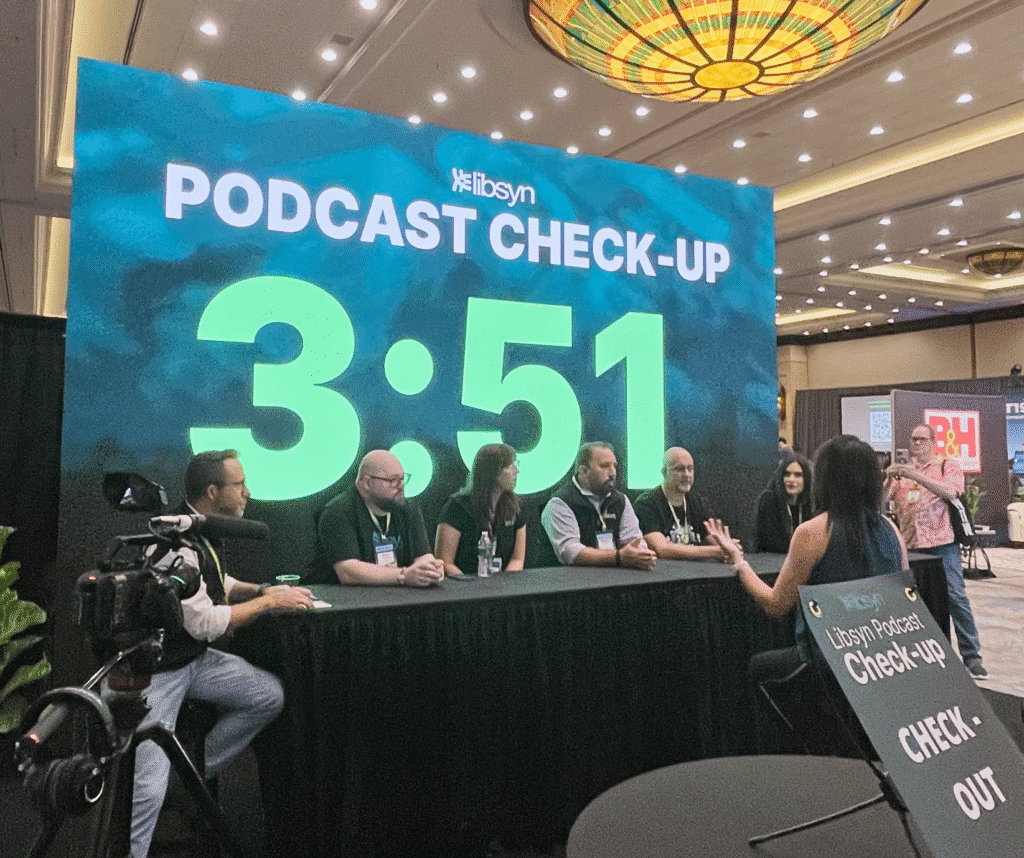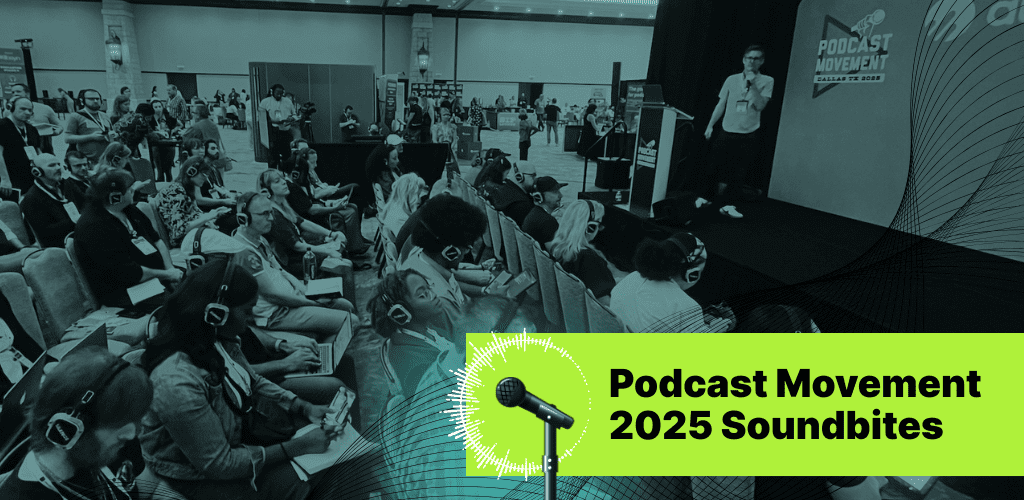For the Libsyn team, Podcast Movement Dallas was all about making meaningful connections within the podcasting community. We were there in a big way, sharing our expertise and providing a hub for creators eager to learn and engage. The passion of the podcasters we spoke with was palpable, and our team was right in the middle of it all.

It was a pleasure connecting with so many of you at our booth and during our “Podcast Checkups”. These one-on-one sessions were a fantastic opportunity to provide personalized feedback and help podcasters tackle everything from growth strategies to overcoming those pesky creative blocks. There’s nothing quite like seeing the “aha!” moment on a creator’s face in person. It’s a powerful reminder of why we do what we do.
Throughout the event, our team and partners were sharing their expertise. Here are just a few of the insightful nuggets we overheard:
On Monetization and Growth:
- Mathew Passy had some exciting news for those just starting: “Libsyn earlier this year announced our programmatic offering, Automatic Podcast Ads, is open to everybody. There is no minimum download for you to accept them in your show using the platform. You are just starting out today. You are eligible to start earning money with your show.”
- For those creating shorter content, Glenn Rubenstein from Adopter Media advised, “The key with monetizing short form content, first and foremost, don’t overdo it.”
- Stephen Pickens cautioned against over-saturating your content with ads: “Listeners are super fickle. They’ll abandon shows that take advantage, that put too many ads in, they’re just getting greedy… I think those that are putting 30, 40% ad load in their shows are going to lose their audience.”
- Stephen Perlstein highlighted the power of collaboration: “The right partnership can really earn you more than 95% of US households and the wrong partnership can make you less than tips that are given at Starbucks.”
- Looking ahead, Kim Hagan predicted, “For next year transparency is going to be key for advertisers. They want to know exactly where their ads are running to make sure that they’re in the right place at the right time.”
- Cam Powers offered a simple yet effective way to add value for sponsors: “I think that as an added value boost just to throw in, do your brand a favor, those really go a long way. And I think brands really notice when you go above and beyond with a little social post or like you said, just throwing in a banner at the end of a TikTok.”
- Anthony Savelli highlighted the evolution of advertising from the days of mass media in television, radio, and newspaper to the hyper targeted ads we hear on podcasts today. Noting that audiences are more fragmented, and “with a disciplined approach advertisers can hit their target audience directly where they are consuming their favorite shows.”
On Strategy and Content
- Elsie Escobar offered a fresh perspective for podcasters ready to level up. When a show no longer aligns with who the creator is, it’s time for a change. For a successful rebrand, she says, “you have to start with a new positioning of who you are now, moving from creator to media director… because being media director is proactive. It’s strategic… you’re not moving from a place of emotion.”
- Rob Walch shared a practical SEO tip for better discoverability: “My recommendation always is what would you search for to find a competitive podcast? What’s that one or two words that you would start typing in? What would you pay for Google AdSense? Get them at the beginning of the title of your show cuz that’s what is going to help you search results not just anywhere.”
- Brooke Collins broke down a popular format: “What is a microcast? It is a short form podcast, usually about 10 minutes in length. It’s like a bite-sized nugget for your ears.”
- Chris Avello reminded us to be deliberate when it comes to influencing your show’s performance based on data. “Treat format tweaks like structured experiments. Instead of saying ‘let’s try this and see what happens’, start with the outcome you want — say, higher completion rates. Then form a clear hypothesis on what to test, and commit to doing it over 3-4 episodes. Measure results and make a decision based on what you see.”
A Quick Recap with Brian and Mathew
For a deeper dive into the key takeaways and trends from Podcast Movement Dallas, check out this video with our very own Brian Cottington and Mathew Passy.
The passion and dedication of the podcasting community is what fuels our ongoing commitment. We left Dallas feeling energized and inspired for what’s to come.
Join Us for Libsyn Office Hours
Ready to take the next step with your podcast? Whether you’re just starting your podcast or looking to level up your show, Libsyn Office Hours is your new go-to meetup for real talk and real solutions.


